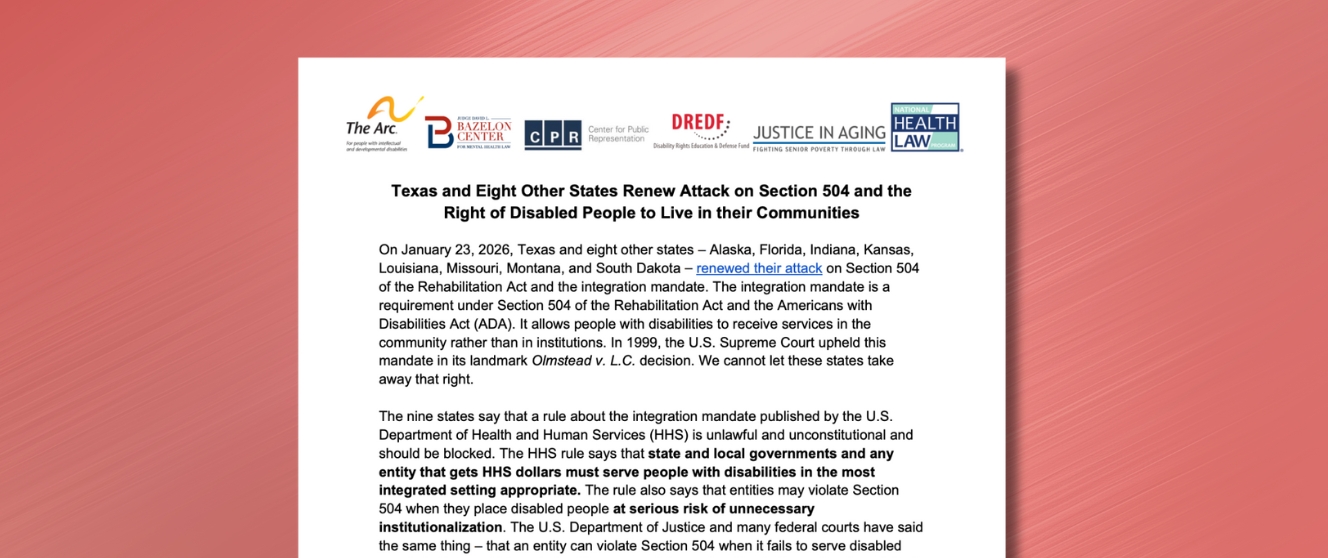
FOR IMMEDIATE RELEASE:
February 16, 2022
MEDIA CONTACT:
Lawrence Carter-Long
LCarterLong@dredf.org
LA Community College District Refuses to Accommodate Students with Disabilities in Controversial Plans to Petition U.S. Supreme Court
LOS ANGELES, CALIFORNIA Nearly 10,000 people from more than 800 different organizations and agencies have signed an online petition spearheaded by two California-based disability civil rights organizations — Disability Rights Education and Defense Fund (DREDF) and Disability Rights California (DRC) — demanding that the Los Angeles Community College District (LACCD) suspend efforts to eliminate protections afforded under the Americans with Disabilities Act and Section 504 of the Rehabilitation Act. Supporters signing the petition include the Honorable Tony Coelho and Steve Bartlett, two of the original authors of the Americans with Disabilities Act of 1990 (ADA), as well as disability activist and Obama administration leader The Honorable Dr. Judith Heumann.
On Wednesday, February 16, 2022, the petition sponsors delivered a list of the signatories, their organizations, and comments to every member of the LACCD Board of Trustees. The thousands of supporters include students and staff from colleges and universities across the country, as well as representatives from civil and disability rights groups, unions, blindness organizations, service dog networks, student groups, rehabilitation agencies, health care, and centers for independent living.
Two blind students together with blindness organizations brought the case in 2017 after discovering LACCD’s websites, textbooks, handouts, educational platforms, and other technologies do not work with screen reading software and are not accessible to them. The federal judge ruled in favor of the plaintiffs in 2019 and ordered LACCD to remedy accessibility barriers. Rather than comply with the order, the district filed an appeal with the Ninth Circuit Court of Appeals arguing that the students should not be allowed to bring claims under the ADA or Section 504 using the “disparate impact” theory of discrimination. “Disparate impact” refers to discrimination that is supposedly unintentional, such as when there is a neutral policy or practice that harms or excludes disabled people. The Court of Appeals disagreed with LACCD and ruled that long-established legal principles prohibit “unintentional” disability discrimination.
On November 17, 2021, and then again on January 3, 2022, LACCD publicly stated plans to file a petition with the Supreme Court of the United States seeking a nationwide ruling to weaken the ADA and Section 504. The District has until March 4, 2022 to file the Supreme Court appeal.
If LACCD is successful, the Supreme Court will rule that the ADA and Section 504 do not prohibit “disparate impact” or unintentional discrimination. This ruling would gut the ADA and Section 504. In most cases, disability discrimination does not happen because of an intent to hurt people with disabilities. Most discrimination against people with disabilities happens because of how society has been organized and built, and due to thoughtlessness about how to make sure disabled people are included. If successful, LACCD’s petition would eviscerate rights for people with disabilities across the nation instead of making its campuses and programs accessible to students with disabilities.
In response to LACCD’s threat, DREDF and DRC circulated the online petition asking the district to resolve concerns and work with students with disabilities instead of against them.
View the online disability community petition.
For additional information about the Payan v. LACCD litigation, read the case explainer provided by DREDF.
Disability Rights Education & Defense Fund (DREDF) is a national, nonprofit law and policy center led by people with disabilities and dedicated to advancing and protecting the civil and human rights of disabled people. As a Parent Training and Information Center (PTI) funded by the US Department of Education, DREDF serves families of children with disabilities and disabled young adults in 33 California counties.
Disability Rights California‘s mission is to defend, advance, and strengthen the rights and opportunities of people with disabilities.
###

